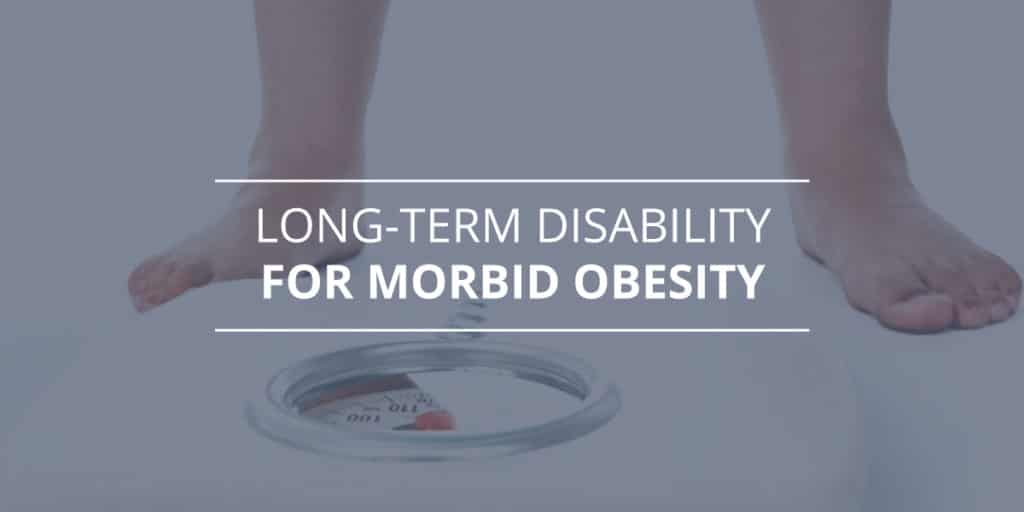
Can you receive disability for morbid obesity? Yes, there are options to receive disability benefits for morbid obesity. According to the Centers for Disease Control and Prevention (CDC), 42.4% of adults in America are obese. Obesity — particularly morbid obesity — can cause a host of health conditions that may make it difficult or even impossible to work.
There are many causes of obesity, including genetics and even the environment where you live. If you are morbidly obese, you likely know all too well how challenging it can be to lose weight — and how carrying excess weight can be detrimental to your health.
For individuals with long-term disability (LTD) insurance, it may be possible to qualify for benefits based on a diagnosis of morbid obesity. A disability insurance lawyer can help you with the process, from filing the initial application to appealing any denial.
What Is Morbid Obesity?
What Is Morbid Obesity? Morbid Obesity is a disease that is characterized by excessive amounts of body weight. Morbid obesity is a medical term that is determined by “abnormally high body mass.” A person may be diagnosed with morbid obesity if they are more than 100 pounds one their ideal body weight, if they have a body mass index (BMI) of 40 or more, or if their BMI is 35 or greater and they are experiencing health complications related to obesity, such as high blood pressure or diabetes.
There are a number of potential causes of morbid obesity, including which may be influenced by genetics, behavior, metabolic differences, and hormones. It can cause a number of complications, including:
- Heart disease and strokes
- Type 2 diabetes
- Some cancers
- Digestive issues
- Gynecological and sexual problems
- Sleep apnea
- Osteoarthritis
Morbid obesity may also affect the quality of life, making it difficult to participate in enjoyable activities. Discrimination against people who are obese may also cause a person to avoid certain activities.
A doctor can diagnose morbid obesity through a physical exam and tests. This may include checking for other health problems and taking blood tests to determine if there is an underlying issue causing excess weight, or if there are any complications. Treatment for obesity may include dietary changes, behavior modification, exercise and activity, prescription medications for weight loss, and weight loss surgery.
How Can You Get LTD Benefits for Morbid Obesity?
If you have long-term disability (LTD) insurance, then you may be able to receive benefits if you cannot work due to morbid obesity. LTD policies generally provide a monthly payment of up to 60% of your salary for a period of time ranging from 24 months or as long as retirement age. Under most LTD policies, you will need to wait between 180 days and 6 months after your disability began to apply for benefits (known as a waiting or elimination period).
When applying for LTD benefits, you will need to disclose certain information about yourself, such as your education, training, and experience. This will help the insurance company make a determination as to whether you can perform your job. In addition, you will have to submit evidence of your diagnosis and how your condition impacts your ability to work.
This second part is critical, as it isn’t enough to simply have a disability. You will only be eligible for LTD benefits if your disability prevents you from working in some way. Proof of this may come from a variety of sources, including a letter from your doctor explaining your condition and how it limits your ability to work.
With morbid obesity, there are a number of ways that you can demonstrate that your disability limits your ability to work. In most cases, the reason that you cannot work is not that you are obese — it is because of a condition that was caused by your obesity.
For example, you may have developed osteoarthritis or other joint issues due to your weight. As a result, it may be difficult for you to do your job, particularly if your position requires you to engage in any sort of physical activity.
Another health condition, sleep apnea, is common among people with morbid obesity. Sleep apnea is a sleep disorder where a person stops breathing repeatedly while sleeping. It can cause excessive daytime sleepiness, difficulty concentrating, and irritability.
If you have sleep apnea as a result of your morbid obesity, these symptoms may make it harder for you to do your job. For example, if you need to focus in order to perform complex calculations at an engineering job, you may find that you simply cannot do so due to a lack of sleep and inability to concentrate. Similarly, fatigue may make it hard for you to do certain tasks safely, like operating heavy machinery.
Insurance companies who offer LTD benefits are notorious for denying claims — often wrongfully. Your insurer might deny your claim because you allegedly didn’t submit enough documentation to support your diagnosis, for example, or it may put you under surveillance and then argue that you aren’t really disabled.
If your LTD claim is denied, you can file an appeal. The first step is to appeal the denial directly with the insurance company. If that appeal is denied, then an SSD lawyer can advocate for your right to compensation through a federal or state lawsuit.
Ready to File? Contact Us Today.
If you can’t work due to a health condition such as morbid obesity, you may be eligible for LTD benefits through your insurer. These benefits can help you maintain your financial stability while you focus on your health.
At Bross & Frankel, we represent clients throughout New Jersey and Pennsylvania who are seeking disability benefits when they cannot work because of a disability. We are dedicated to providing the highest level of service for each of our clients. If you would like to schedule a free claim review, call our office today at (856) 795-8880 or contact us online.